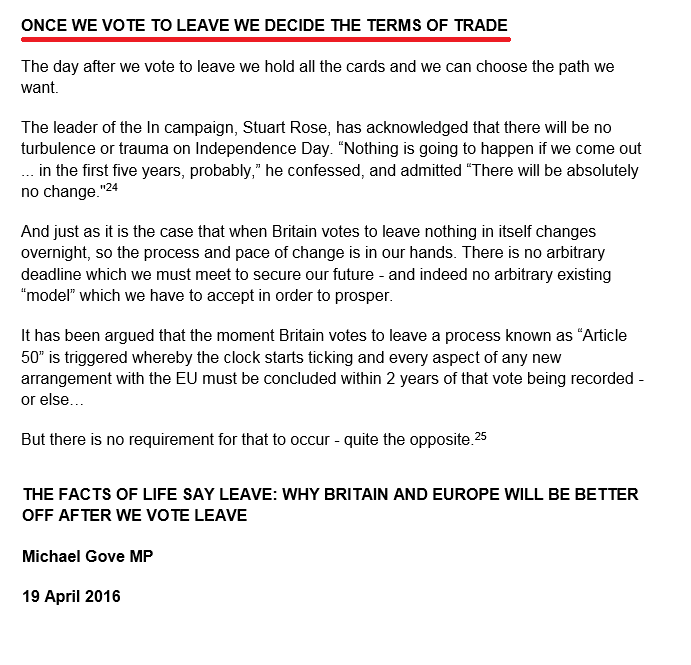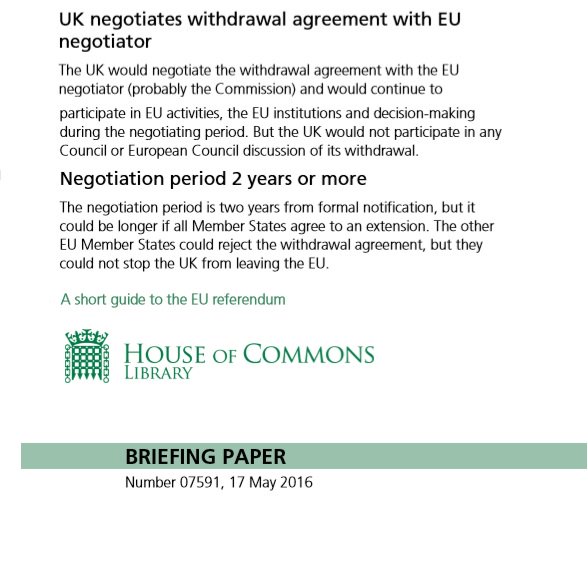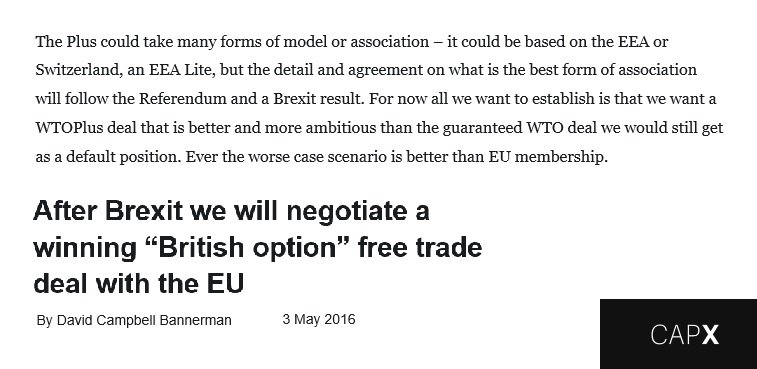Hello Mr Morgan,
I’ve just seen this tweet. I don’t know if you were out of the country at the time, but let me respectfully explain why this isn’t a fair reflection of what the referendum was about, and therefore what people "voted for"....
I’ve just seen this tweet. I don’t know if you were out of the country at the time, but let me respectfully explain why this isn’t a fair reflection of what the referendum was about, and therefore what people "voted for"....
https://twitter.com/piersmorgan/status/1112274396461387776
The Referendum Act 2015 was on whether or not the United Kingdom remain a member of the European Union. It was only possible to vote to remain a member, or to stop being a member. 

If you are now wondering what leaving membership of the European Union would mean, the Referendum Act included a duty to publish information about membership. Section 7(1)(b) required the government to provide examples of countries that were not members. 
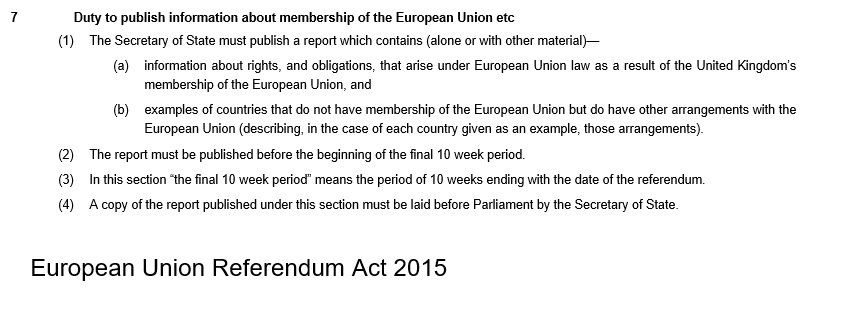
The report “Alternatives to membership: possible models for the United Kingdom outside the European Union” made it clear the government would review the different models and seek an agreement to achieve the best possible advantage for the country. 



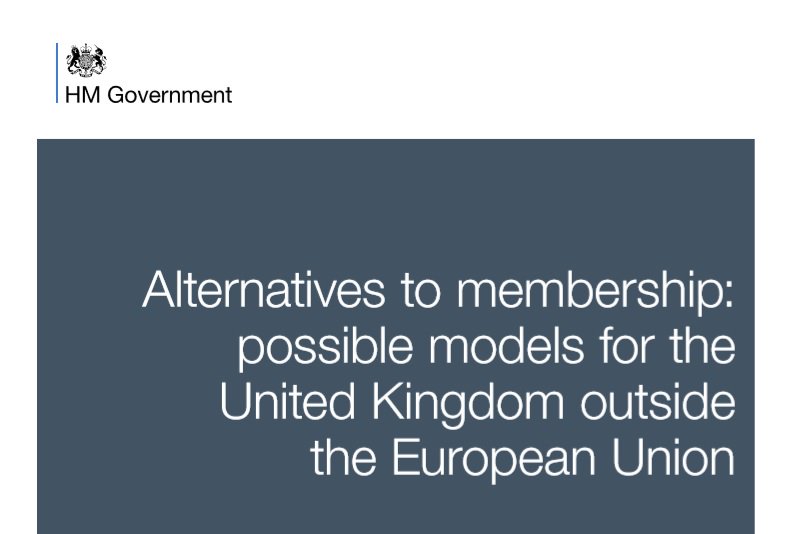
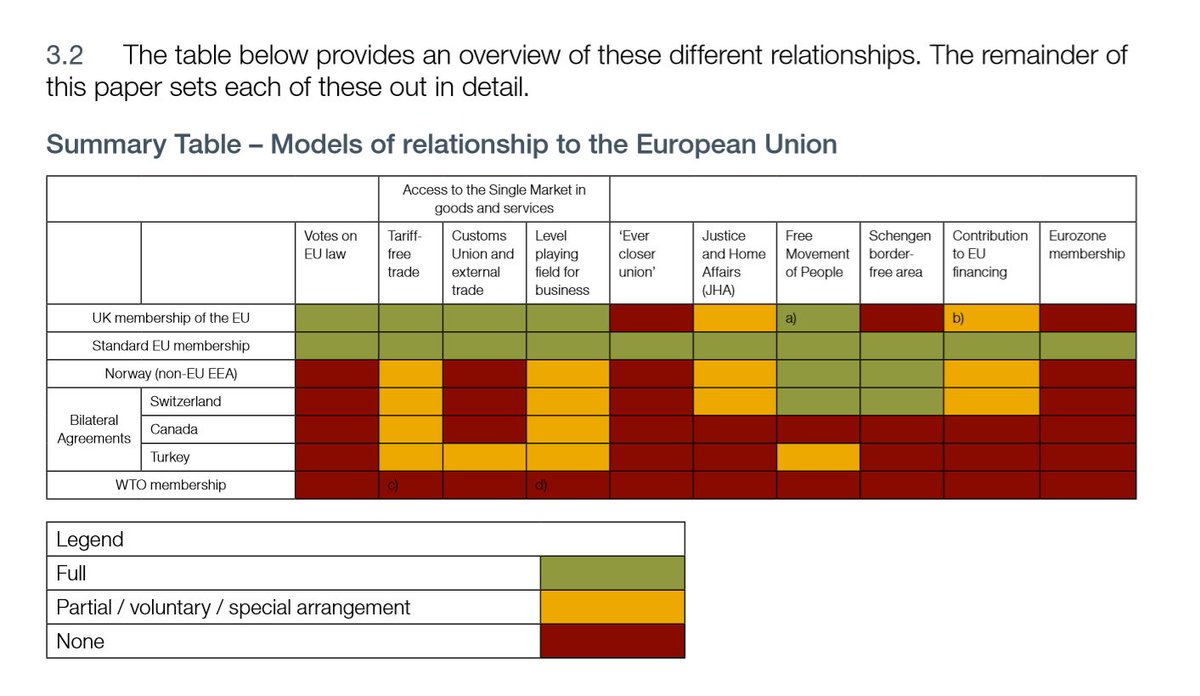
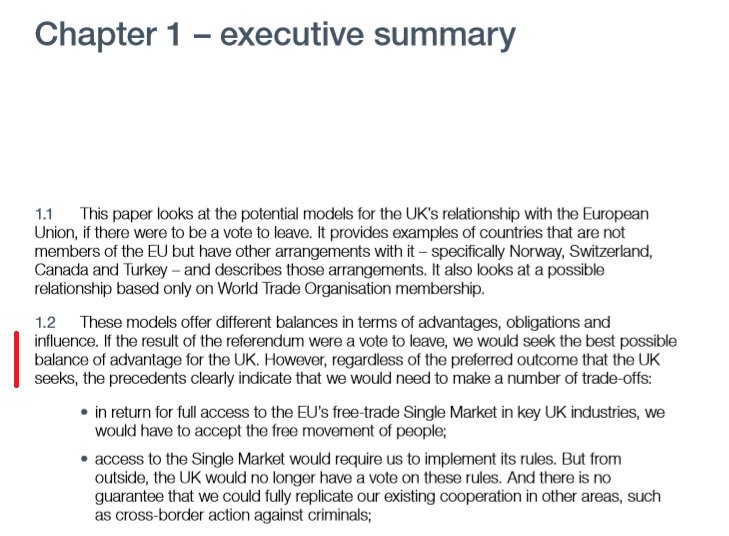
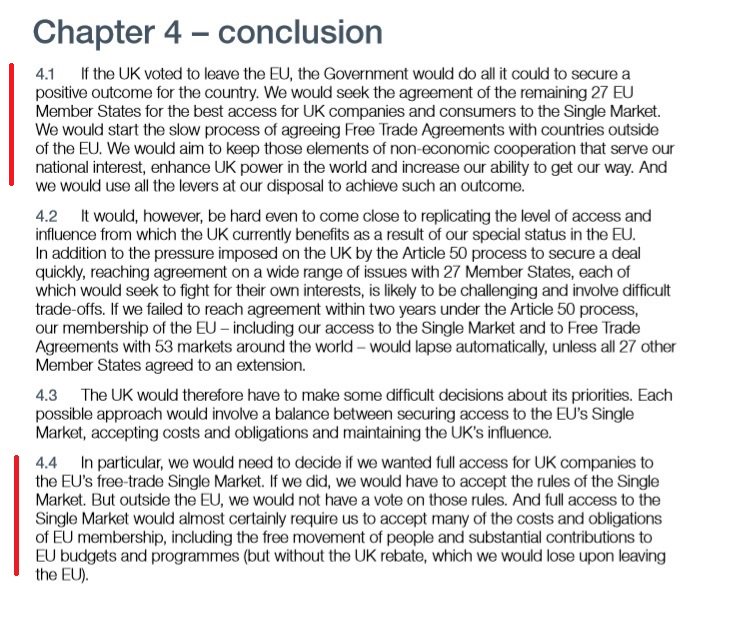
The treasury documents highlighting the short term and long term impact of a vote to leave referred to the ‘Alternatives to membership’ highlighting the multiple different relationships the government may pursue in the event of a vote to leave. 

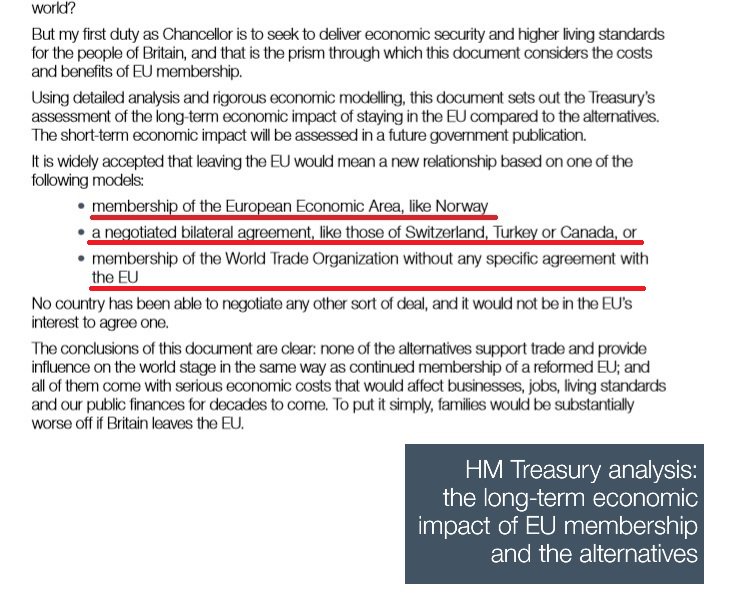
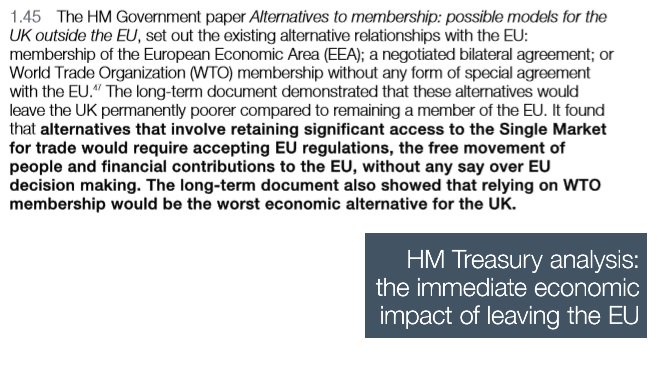
Then, in a leaflet sent to every house in the country, the government stated that if there was a vote to leave they would need renegotiate new arrangements with the EU. 
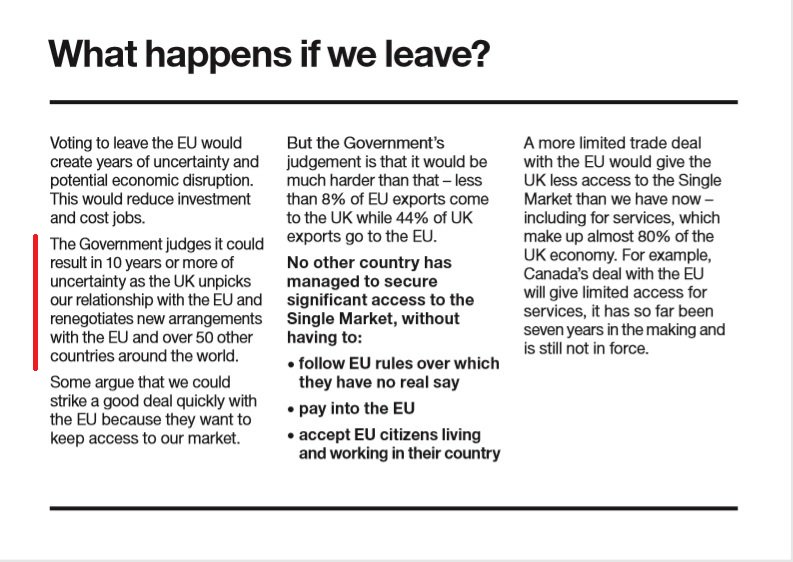
Now, in terms of the debate, we were told that free and open trade with Europe was what the Eurosceptics had “always wanted”.
That a free trade agreement that continued to give access to UK goods and services on the European Union was “what it was all about”.
That we’d have free trade on goods. Done!
That if we left, we would sign new trade deals, and yes, one of the free trade deals would be with Europe.
That the Lisbon Treaty legally obliges the EU to negotiate a free trade agreement.
That we were guaranteed a trade deal.
That a vote to leave would be a vote to leave the European Union and the Single Market and we would ‘have’ to negotiate a trade deal with them.
(I maintain he was only talking about what he would do, but so many leavers said they believed this was what the vote was about!)
(I maintain he was only talking about what he would do, but so many leavers said they believed this was what the vote was about!)
Some had no doubt at all that we would carry on trading tariff free, without tariff, with the European Union.
We would have 'full access' to the Single Market but be free from the regulation
That maintaining access to the European Markets, and increasing access to markets around the world, was really “much of the argument for Leave”.
That the deal we would have would not only be better for us, but it would be better than the deal the Europeans have amongst themselves, and that was "rather the point."
That it would be a better deal than the one Britain has at the moment.
Some politicians said they thought we could take tariff free trade for granted in our future relationship.
At least one politician thought everything was up for grabs. That if the country votes to the leave there would be a whole series of negotiations, and whoever was going to be doing the negotiations could almost pick and choose.
And we would do a deal that will do a deal that suits Northern Ireland and the Republic.
That the UK would have a UK solution that would be something that’s discussed once we get to the other side of June 23rd.
That if we wanted any kind of different deal with the European Union we had to vote to leave, and from that position we could sit down and talk about what kinds of collaborations and power sharing we were interested in.
That it would be the easiest negotiation known to mankind.
That negotiating a free trade agreement with the EU would be as easy as we want it to be.
That the idea that Britain would be apocalyptically off the cliff edge if we left the EU is silly.
That Article 50 would prevent the economic shock of the UK crashing out.
That we would not work under WTO rules.
That the worst case scenario is we don’t get a tariff free deal.
That there was a situation if we leave the European Union that we would be there begging to get back into the Single Market, and that our Membership of the European Union was on the ballot paper.
And then after being told all that, we went and voted in the referendum on the United Kingdom’s membership of the European Union. 
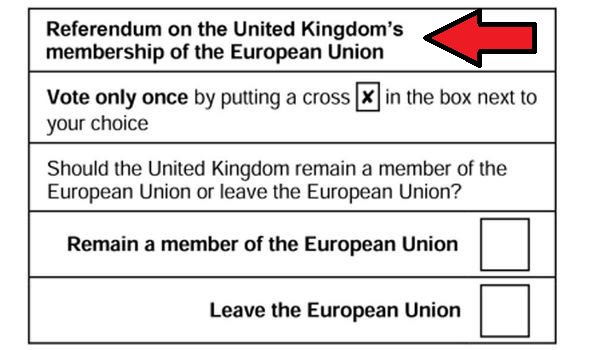
Now if you’re right we voted for no deal, it means the voters ignored the law, the ballot slip, the government leaflet, the Prime minister, the rest of the debate, and pretty much everything.
If they did, the polls taken at the time would show it, but they don’t.



If they did, the polls taken at the time would show it, but they don’t.
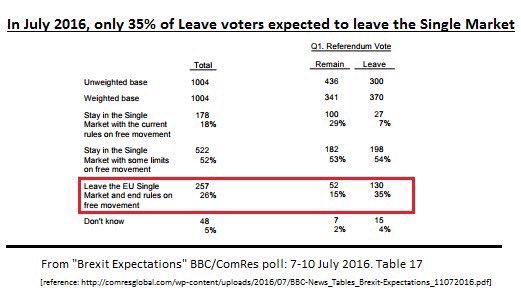
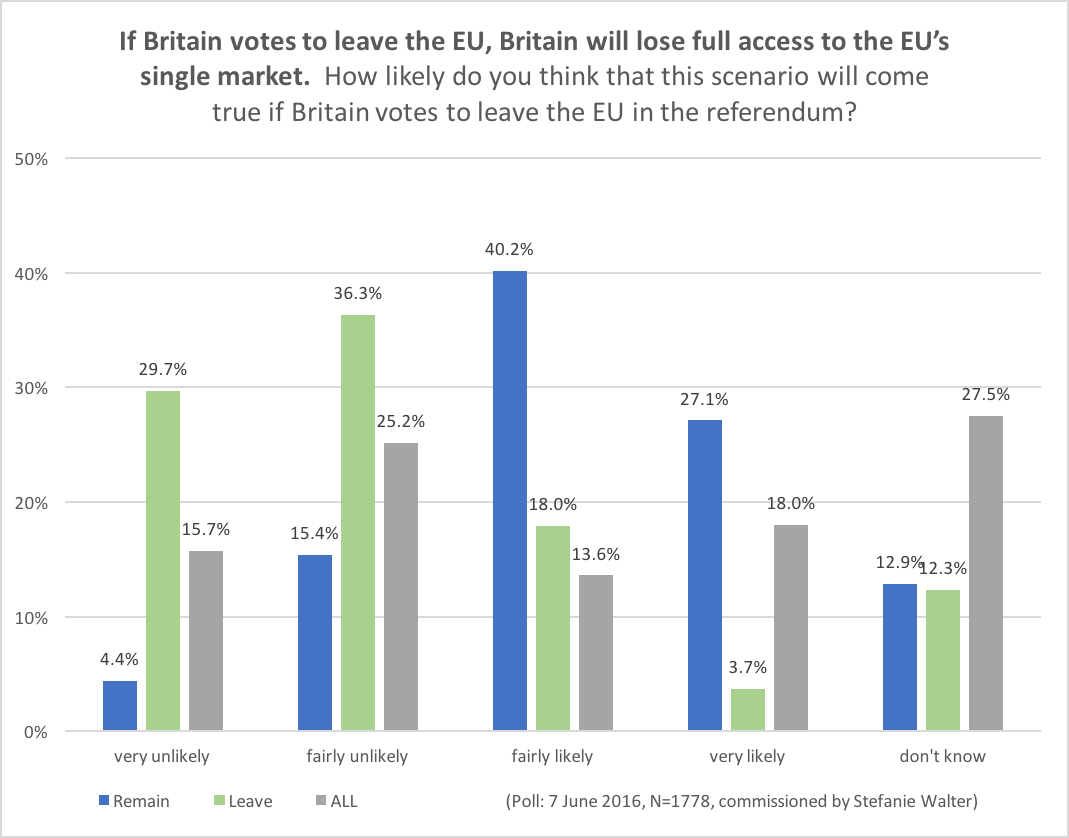
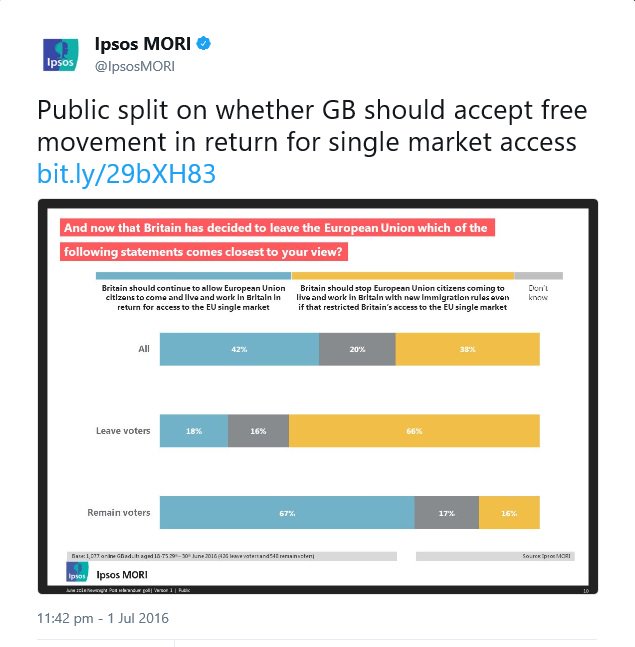
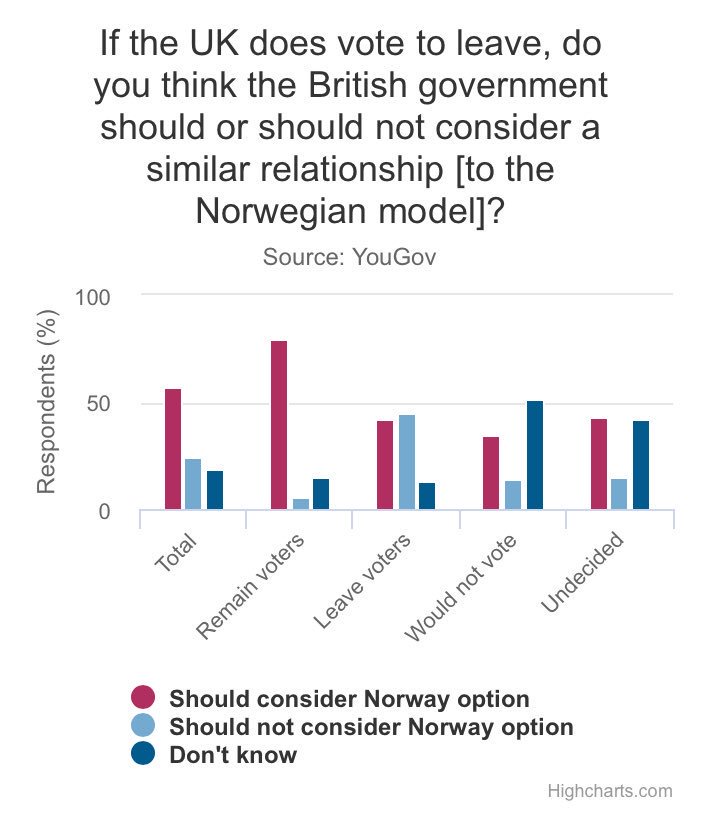
It’s at times like this I am reminded of John F Kennedy who said that the ignorance of one voter in a democracy impairs the security of us all.
So can I ask you nicely to produce a poll made at the time of the vote that supports your claim, and if can’t, I would greatly appreciate if you stopped impairing my security with your ignorance.
All the best,
Steve
All the best,
Steve
P.S. If you can’t produce that poll, and you’re that sure that people want no deal, then why not call for a formal ballot?
/End
/End
• • •
Missing some Tweet in this thread? You can try to
force a refresh

